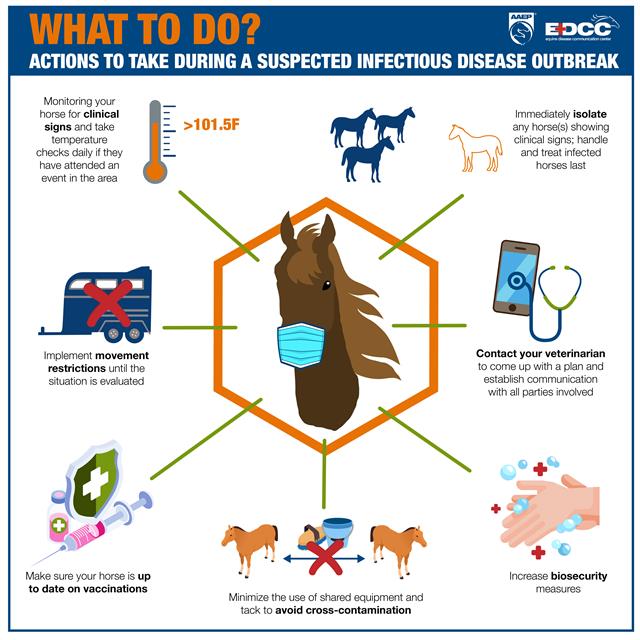The Equine Disease Communication Center (EDCC) is aware of the neurologic form of EHV-1 in Florida and are monitoring the situation closely. Currently there are two cases in Florida from a single private facility in Ocala which is quarantined with restricted movement and ongoing monitoring under the oversight of the state veterinarian’s office. There are no other cases of EHV-1 in Florida at this time. Due to concern that horses at the World Equestrian Center (WEC) may have been exposed, the WEC has recommended increased biosecurity measures to keep horses safe.
Although there is no evidence that the EHV-1 outbreak in Europe is linked to the cases in Florida, because horses from Europe are commonly imported into the United States, horse owners should increase monitoring of any horses that have recently traveled to horse shows or were exposed to horses that have traveled.
Because of the possible exposure that can occur at horse shows and during transport, the EDCC recommends the following biosecurity precautions:

Equine Herpesvirus (EHV-1) is spread from horse to horse through contact with nasal discharge or spread as aerosol droplets. Horses can also contract the virus by coming into contact with contaminated surfaces such as stalls, water, feed, tack and transport vehicles. Information about equine herpesvirus neurologic disease is can be found on the owner factsheet.
If you suspect an infectious disease of any kind go to "What Horse Owners Should Do During the First 30 Minutes of a Suspectd Infectious Disease Outbreak" to prevent disease spread.
Additional resources
What is Biosecurity
AAEP Biosecurity Guidelines
AAEP FAQ EHV
Biosecurity at Events